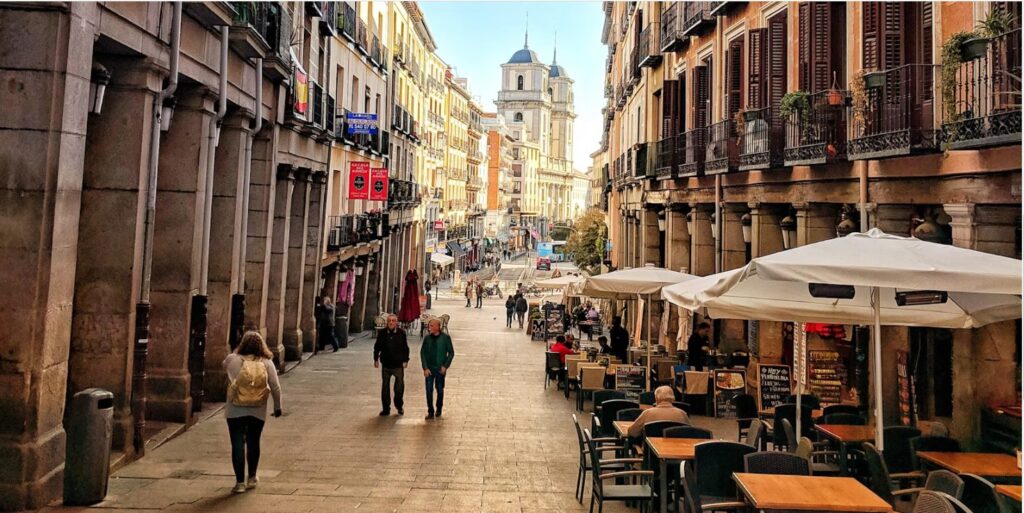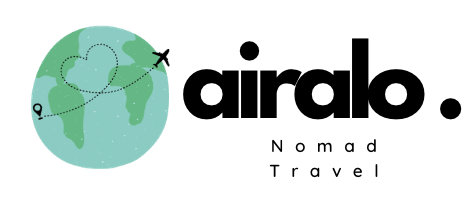
Approved in December 2023, the Digital Nomad Visa in Spain has become a new residence permit, effective from January 1, 2024! This allows non-European citizens who work remotely, whether as freelancers or employees working for companies or clients, to obtain residency in Spain. This news has attracted the attention of more digital nomads, but what are the requirements for applying for the Spanish Digital Nomad Visa? This article will outline in detail how to apply for the visa.
Required Documents
What documents are needed to apply for the Spanish Digital Nomad Visa? Here are the basic requirements for the freelancer permit:
- Provide your resume, university degree (if applicable), and experience in the field. (A university degree or higher education background is required. You need to have a university degree or three years of experience in the field. Your experience can be demonstrated through recommendation letters, contracts, etc.)
- Sign a letter of commitment to pay the Spanish social security fees during the approval period. This is because Spain requires proof from the tax authorities of your home country. (By doing so, even when working remotely in Spain, you can continue to pay social security fees in your home country. Therefore, you need a document certifying the provision of social security coverage throughout the period to ensure that you fulfill your social security obligations back home.)
- Purchase private health insurance in Spain before starting to pay the social security fees. (When you want to purchase health insurance in Spain, you need to fill out a form explaining your prerequisites and health condition. The insurance company will approve all requests within a few days. If approved, you need to make an upfront payment for the usual six-month fee, and they will provide you with insurance for the subsequent immigration procedures. Generally, the price of health insurance in Spain ranges from 50 to 80 euros per person per month, providing comprehensive coverage.)
- Regarding financial funds, you need to demonstrate that the main applicant has savings of over 28,800 euros. For each additional family member, an additional 7,200 euros is required.
- Provide a criminal background check, fill out forms, and sign a power of attorney if applying through a lawyer. (Note: If you are from the United States, you need to obtain a criminal record. You need to apply to the FBI for a criminal record. Once you have obtained the criminal record, it needs to be authenticated and translated into Spanish. This can be done in Spain, but it may take longer than if done in the United States. If done in Spain, it takes about 10 to 12 weeks, while in the United States, it takes only 7 to 8 weeks.)
Application Requirements
For freelancers:
1. Need to prove that you have been a freelancer for the past three months.
2. Need to demonstrate that you have clients and the company has been in existence for more than 12 months.
3. Also, a letter from these clients is required, authorizing the freelancer to work remotely in Spain. (It should specify the amount they will pay for the services and any special conditions.)
For employees:
1. Need to prove that you have been working for a company in the past three months.
2. A letter from the company is also required, authorizing you to work remotely in Spain. (It should specify salary and the terms and conditions of employment. These are general requirements for both types of visas.)
Points to note:
This is an issue that concerns everyone, but we need to be clear about our objectives. We need to consider three things:
Taxation:
If you want to extend your residence permit, you need to reside in the country for at least six months per year. This means you will become a tax resident and will be required to pay taxes. For this purpose, Spain has established a special tax regime where all income derived from professional activities within the first five years will be subject to a 24% tax. There is no need to declare overseas assets and wealth or pay taxes on them in Spain. Therefore, digital nomad visa holders will be taxed at a unified rate of 24%, and the taxable income will be all the income they earn from their work in Spain. (If you come to Spain as a freelancer, you won’t be able to enjoy this 24% tax benefit and will have to pay taxes at the regular self-employment rates, which range from 17% to 49% in Spain. So, to summarize, this tax benefit only applies to company employees.)
In the video “Spains Digital Nomad Visa Everything you NEED to know” by YouTuber Patrick Guide Barcelona, it is mentioned:
“The number of days that you’re here, how does that work? Yes, on regards to taxes because this law is not only an immigration law, it has also the tax. They mentioned also how they will be taxed, these digital Nomads, on regard to the taxes. Here, we have three things to take into consideration. The first one is that all the digital Nomads, if they want to extend their permits, they will need to be at least six months per year in the country. This means that they will become tax residents and they will have to pay taxes. And for this, they created a special regime which would be 24 percent on all the incomes from the professional activities during the first five years. And they don’t need to declare their assets or wealth abroad and to pay for it in Spain. So, they will pay a flat fee of 24 percent on all that they receive from the work that they perform in Spain. How long is the actual… or how long, should I say, is the actual Visa valid for the digital Nomads? Visa will be valid for three years, and the renewals will be always for two years.”
Validity period:
How long is the actual validity of the visa? The digital nomad visa is valid for three years, and each renewal is for two years.
Differences from other visas:
Target audience for the visa:
In the video “Spain’s Digital Nomad Visa How to apply and live like a local” by YouTuber Alina, it is mentioned:
“And the third key point of the law is that you have to prove that you have been working for this company or companies as a self-employed that authorize you to work from Spain for at least 3 months. So to prove that it’s not something new. Can anybody from all over the world apply for this visa, or are there any restrictions? It’s open for anybody except for probably EU citizens.
It doesn’t make sense, probably, to apply for it, right? Exactly, very good what you said. This law is oriented to non-European citizens. It can apply to all non-European citizens. There are no restrictions with the nationality of the country of origin. So it would be all non-European citizens. And of course, European citizens cannot take advantage of this law because they have a better way to get a permit. ”
How is it different from a non-profit visa?
Because this is a visa that allows you to reside and live in Spain for three years, with the possibility of renewing for two years, you can reside in your own country/residence country until you come to Spain to apply when you obtain the visa. After obtaining residency, you will receive a residence card, known as the famous TI card.
What are the income requirements?
The financial standard is that each applicant needs 2,650 euros. So, for the main applicant, this will also affect family members. For a family of two, you need to prove a monthly income of 3,638 euros for the past three months. Assuming you have a family of three members, you need to prove a monthly income of nearly 4,000 euros. For a family of four, you need to prove an income of 4,300 euros. If you come with your spouse, we will need a marriage certificate. If you bring children, you will also need their birth certificates.
Are these income figures before or after tax?
These are pre-tax income figures. Basically, you will always be responsible for paying taxes yourself.
Regarding tax, the video “How to Live and Work in Spain Digital Nomad Visa FAQ w a Visa Expert” by YouTuber Days We Spend mentions:
“A lot of people are nervous about how the taxes work. Can you talk a little bit about how the taxes work with the digital Nomad Visa? As always, I say I’m not the tax expert. I always advise to contact a Tax Advisor. Having good tax advice is not for free, so it’s better to invest in that. It’s not that simple as it looks. I’m going to give the biggest example. So, you are from the US and you want to come to Spain on the digital Nomad visa, and yes, you are an independent contractor. Because as an employee, the companies do open a branch in Spain, paying your salary, etc. And most of the companies do not want to open a branch in Spain because it’s a lot of paperwork and taxes. You are going to pay taxes as anyone from Spain because you’re going to be autonomo, and you don’t get any tax benefit. What is that that we read about, like flat 24% tax? Yeah, but it does not always apply. I would say just in a few cases. So, the law was very friendly at the beginning, but when we applied, we found out that it’s not that simple as it looks. So yeah, I suggest contacting a Tax Advisor to check your situation before deciding to come to Spain. It’s better to know the truth before having ugly surprises in the future. It’s so complicated. There are so many different paths this Visa can take and what the requirements are, just depending on your personal need. Yes, and something that I want to say, not always the Social Security bilateral agreements are effective. In the US, it is not effective. It exists, but it’s not effective in Canada. It is effective in some provinces, and they are not the most popular ones. They are not British Columbia or Ontario. So, it’s not that simple. What is the most common reason for a problem with the application? The most common challenges that we find along the way is the company registration with a poil. You know you have a client, and the client is from the British Islands, so it’s not that popular a country. So, you need to get the company registration from your client in the British Islands, plus an apostal, and the apostal must be done to the original documents. You cannot get a notarized document and later get a post.”
Can income from different clients be combined for calculation to meet the requirements?
Because if you are self-employed in Spain, you may have one, two, or three clients. It depends on you. You just need to meet the minimum requirements of financial capacity. If you have two clients, you need to provide all the documents we mentioned earlier for both clients.
Application process:
- This is very different from the non-profit visa, as you can come directly to Spain and enjoy life while the application is in progress.
- Apply for FBI background checks and authentication documents.
- 3. Once you obtain these documents, you can immediately proceed with the subsequent process in Spain, which really speeds up your timeline for living here.
- You come here, submit the application, and generally wait for 20 working days for a response. Sometimes you may be asked to provide additional documents.
- There is a period of 10 working days to collect additional documents and submit new ones.
- You need to wait to see if the residence permit is approved. When the residence permit is approved, you will receive an approval letter.
- Then you need to find a residence in Spain for at least six months and apply for the Spanish residence card (TI).
Things to consider:
That is the length of the residence. It will be determined by the duration of the contract with the client. If you only work with a client for 18 months, the validity of the visa will be 18 months.
Is this a pathway to citizenship?
If you want to become a permanent resident, you cannot frequent the European Union as you wish, because authorities will check all entry stamps on your passports for the past five years.
If you are a US citizen, you can apply for citizenship after residing in Spain for ten years.
If you are from a Latin American country, for example, you are eligible to apply for citizenship after residing for two years.
Because many people come here with the idea of non-profit visas or golden visas, which fall under the retirement category. How does this process compare to other visas? Here, a digital nomad visa is in effect to regulate the status of all remote workers who cannot work in Spain.
Differences between different visas:
Non-profit residence permit
It needs to be processed initially at the consulate. Then, renewals can be done in Spain, and the consulate is very cautious when granting these permits to those who will work remotely, in fact, they do not grant them.
Digital nomad visa
The consulate finds that the applicant is working and intends to continue living in Spain. They will reject this non-profit residence permit because it is intended for people who are retired and do not want to work. This is why the digital nomad visa helps all those who cannot apply for a non-profit residence permit because they work remotely or want to work from Spain.
Golden visa
The golden visa is also a very attractive permit, as basically, if you invest 500,000 euros in real estate in Spain, you will obtain a residence and work permit through the fast track. Therefore, those who obtain this visa can also engage in digital nomad activities. The golden visa is the best option because the processing speed is very fast, and everything can be provided. The digital nomad visa is also very good, but you need to prove a digital relationship with an employer or client. As for the non-profit visa, it is only suitable for those who want to retire and do not want to engage in any other activities. Then relax and go to the beach.
In conclusion, I hope this article can help all digital nomads who want to obtain a Spanish digital nomad visa! Thank you.
This article references the following video sources:
https://www.youtube.com/watch?v=1Hkf1lpu3aQ
https://www.youtube.com/watch?v=RtSOeuSsW4A
https://www.youtube.com/watch?v=nPK8zO3BNxU
If you have more questions or need assistance with tax-related matters, feel free to leave a message or add our official WeChat account to access a range of professional services, including tax planning, consulting, immigration, and digital nomad assistance.





